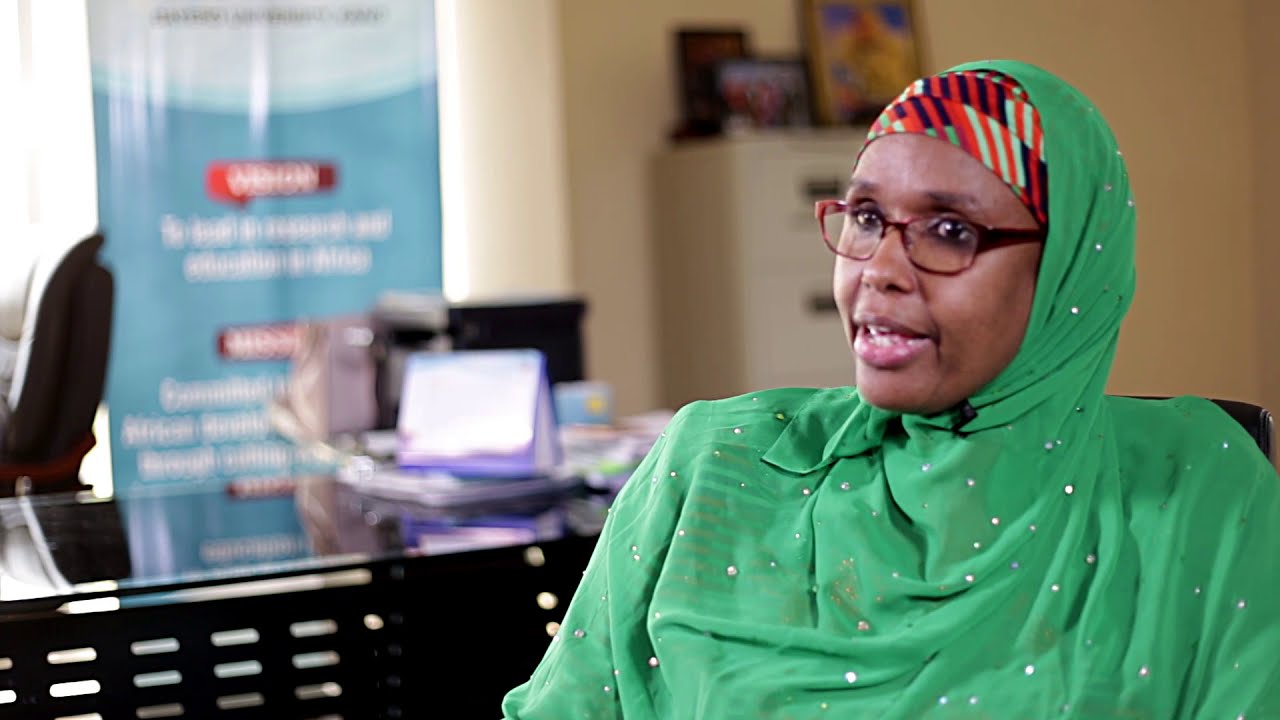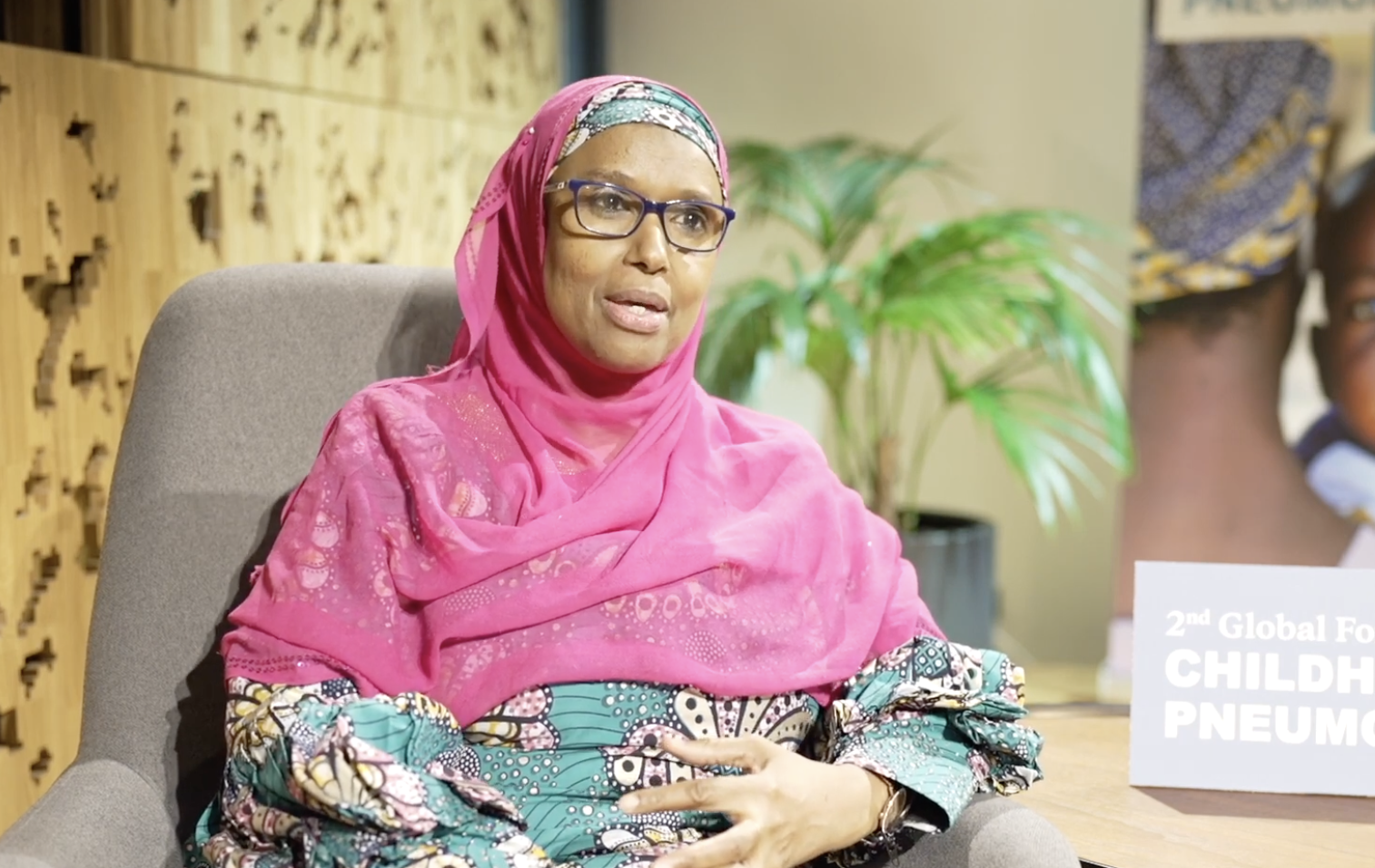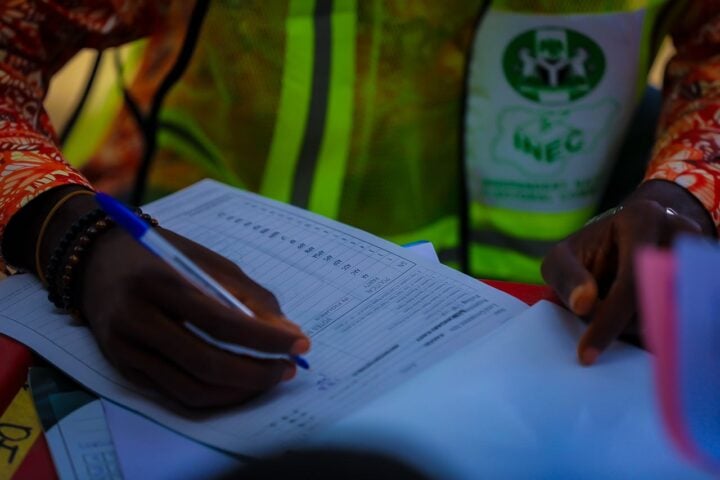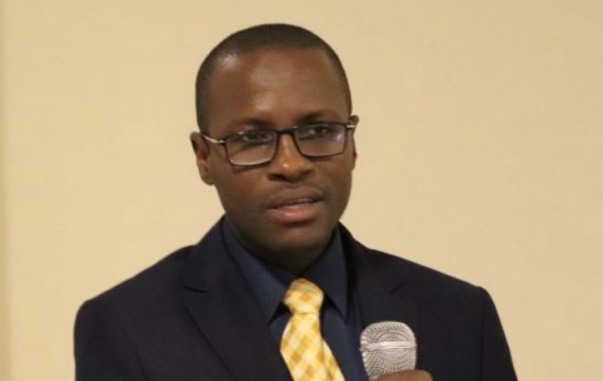As Nigeria kick off plans to vaccinate 7.7 million girls against cervical cancer, TheCable’s editor-at-large, ‘MAYOWA TIJANI, spoke to Jeremie Zoungrana, the country director of the Bill and Melinda Gates Foundation (BMGF), and Hadiza Galadanchi, a professor of obstetrics and gynaecology in the College of Health Sciences, Bayero University Kano. The duo share more on how vaccinating 72 million Nigerians with COVID-19 jabs has prepared Nigeria for this, and how we can stop cervical cancer from killing thousands of Nigerian women.
Nigeria is on its way to a new record for the largest number in a single round of HPV vaccination in the African region as it introduces the human papillomavirus (HPV) vaccine into its routine immunization system, aiming to reach 7.7 million girls.
“Routine immunization is one of the focus areas of the Bill & Melinda Gates Foundation. Hence, it continues to support the Government to ramp-up coverage,” Zoungrana told TheCable. “Working with the National Primary Health Care Development Agency (NPHCDA), media and other relevant stakeholders, the Foundation supports the fight against misinformation as it relates to Human Papillomavirus (HPV) vaccination.
“A lot still needs to be done to increase the coverage for routine immunization in the country, as data from the 2021 Multiple Indicator Cluster Survey/National Immunization Coverage Survey Report shows that coverage still revolves around 57 percent nationally.
Advertisement
On HPV, he said “cervical cancer is the fourth most common cancer type among women worldwide and the second most common in India and the continent of Africa. In 2020, there were an estimated 604,000 new cases of the disease globally.
“Sadly, women in low- and middle-income countries (LMICs), including Nigeria, experience a significantly high burden of cervical cancer. Of the estimated 342,000 cervical cancer deaths in 2020, more than 90 percent occurred in low- and middle-income countries, making cervical cancer one of the most significant threats to women’s lives in these geographies.”
CERVICAL CANCER SECOND MOST COMMON CANCER IN NIGERIA

After breast cancer, cervical cancer is the most common cancer among Nigerian women. The Nigerian government, Gates Foundation, and other stakeholders like Hadiza Galadanchi are working to change that.
Advertisement
According to Galadanchi, “most of the people that come to the hospital with cervical cancer, come at the late stage when even if you have the best of equipment, it is very difficult to treat”.
“We know that the facilities for treating advanced cervical cancer such as skills for doing major hysterectomy or radiotherapy, are not easily available and affordable in Nigeria. So, prevention is the answer.
“We are so lucky that cervical cancer has been shown to be caused by the Human Papillomavirus, the specific serotypes of Human Papillomavirus like 16, 18, 34, 54 and so on.
“The natural cause of cervical cancer is very well known. So, you don’t just wake up one day and get cervical cancer, you start with the precancerous lesion, which is the cervical intraepithelial neoplasia which becomes a persistent lesion, and it becomes carcinoma In Situ, and then it gets to pure cancer.
Advertisement
“We know that if HPV is the one that causes these changes in the cervical mucosa, then you can prevent the HPV infection.”
CERVICAL CANCER IS PREVENTABLE
The duo agree that cervical cancer is a highly preventable cancer, and easily treatable when detected early. But Nigeria and other low/middle-income countries (LMICs), are responsible for most of the women who die from cervical cancer because “prevention and treatment are often out of reach”.
To prevent cervical cancer, Galadanci recommends that young girls aged 9 to 14 should be given “the HPV vaccination before they are exposed to any HPV infection”.
“That is why you give it to the very young ones. Unfortunately, once you start sexual intercourse, the risk of you having HPV infection is very high. That is why you catch the young girls at 9 to 14,” she adds.
Advertisement
For women that are 30 years and above, she says “what they need to do actually, is to be on the routine screening, which is the Pap Smear screening”.
“All they have to do is have their Pap Smear screen because when you do Pap Smear you will be able to detect the cervical lesions, and once you treat them, then they don’t get cancer.
Advertisement
Galadanci advises that women between 26 and 30 years, should get into the routine cervical cancer screening program.
“On the other hand, if they want, they will have to do the HPV testing to make sure they don’t have the virus before they can get vaccinated. That is the only other option. But the likelihood of them getting the HPV infection is very high once they have started having sexual intercourse. So, it is better for them to go to the routine cervical cancer screening with Pap Smear.”
Advertisement
HPV Vaccine does not promote teenage sex

Due to the fact that is targeted at young girls who have not begun sexual intercourse, there are concerns that the HPV vaccine might be seen as a licence to promiscuity.
As a professor of obstetrics and gynaecology, Galadanci, busts the myth, saying that it “is a very wrong notion”.
Advertisement
“HPV vaccination will not promote or support teenage sex. When you get HPV vaccine, that does not give you a guarantee that you’ll be protected from all the other sexually transmitted diseases,” she warned.
“You have HIV to battle with, and other sexually transmitted diseases like syphilis, gonorrhea, unwanted pregnancy, and all the complications of unwanted pregnancy.”
She called for a lot of education at the community level to deal with this misinformation and correct any such notion.
COVID-19 PREPARED NIGERIA FOR HPV VACCINES
According to the Gates Foundation in Nigeria, “over 60 million of the eligible population are fully vaccinated, while over 72 million have received at least one dose of the COVID-19 vaccine”.
Speaking to vaccine storage and distribution, the Gates Foundation country director told TheCable that Nigerians need not worry about temperature constraints associated with HPV vaccines.
He said “temperature and storage facilities should ordinarily be a challenge. However, again, part of the blessings that came with the COVID-19 pandemic is the procurement and acquisition of vaccine storage ‘cold-chain’ facilities”.
Zougrana added that the foundation will support the Nigerian government in “ensuring that HPV vaccines are properly stored to preserve their potency by the time they reach the recipient beneficiaries”.
HPV vaccines are to be stored at 2 to 8 degrees.
HPV VACCINES ARE LIFE-SAVING, NOT MANDATORY
As a doctor and researcher of repute, Galadanci believes that vaccines are great tools for saving women’s lives, but does not believe vaccines should be made compulsory.
“I don’t think HPV vaccination should be mandated by legislation. I think what is important for us is to educate our people to create awareness,” she said.
This is “to make sure that all stakeholders are carried along – religious leaders, traditional leaders, community leaders, women groups, healthcare workers, policymakers – are carried along and are really educated on the importance of HPV vaccination”.
“Once people understand the importance, and where they need to get the vaccination, then they will support the HPV vaccination. I don’t think mandating it by legislation will be the answer because, of course, one has to think of human rights and all other aspects that need to be considered.”
LESSONS FROM GROUND-BREAKING PPH RESEARCH
As a researcher, Galadanci led a study called E-MOTIVE, where her team designed a simple, low-cost way to identify when blood loss is dangerously excessive.
The application of her research decreased cases of severe bleeding by a remarkable 60 percent in 200,000 women.
Speaking on her experience and how that can help HPV vaccines, she recommends “it is extremely important to study the implementation strategies and see which one will best affect Nigeria”.
“Generally, for emotive, we had training; it is very important for whatever intervention you are going to introduce, you must train all the stakeholders that are part of that intervention”
Specifically for HPV vaccination, she said Nigeria must train, increase capacity and do community mobilization, “so that every single person is aware of what HPV vaccine is, and why we have to do it, how it is going to be done, and others”.
“We need to have champions. We need to identify champions in all the various communities where we are going to be doing these vaccinations.
“These champions can be at the Federal level, State level and at the community level, so that they continue to advocate and continue to mobilize people towards vaccination.
“We need to have everything that is required to do the vaccination. The logistics should be all optimal so that there won’t be itches as we roll-out the HPV vaccination.
“Finally, feedback to the community, I think it is very important that we carry along the community and continue to give them feedback and every monitoring report, so that they are aware of what is happening.”
Galadanci said cervical cancer is a “common cause of suffering and death for women in Nigeria”, and “we need to mobilize resources and make sure that all hands are on deck to protect our daughters from contracting the virus in the first place”.







